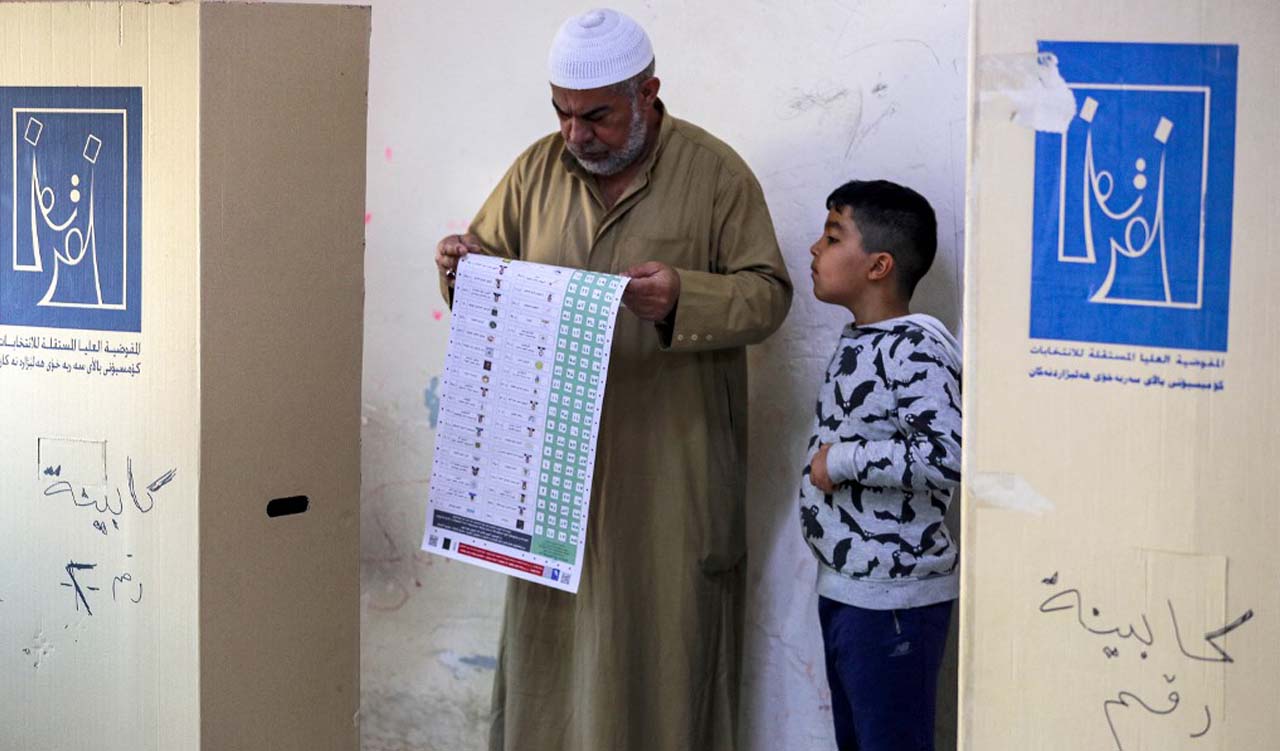Over nine million Iraqis did not participate in provincial elections

ERBIL (Kurdistan24) – More than nine million people did not take part in the 2023 Iraqi provincial elections out of more than 16 million eligible voters, setting the turnout at 41 percent, according to the electoral authority.
Only 6,599,668 people voted in the election, per official figures published by the Independent High Electoral Commission (IHEC) on Monday. The figures are from both the early voting and general elections.
The turnout stood at 41 percent, a decrease from the 2013 provincial election turnout of 50 percent.
The oil-rich Kirkuk province, where several ethno-sectarian groups were vying for its provincial seats, witnessed the highest turnout across Iraq, as 65 percent of the eligible voters took part in the elections.
The low turnout partially contributed to the boycott of the elections by several Iraqi parties, including the Sadrists. Moqtada Al-Sadr, the Shiite firebrand, extended his gratitude to the boycotters.
“Thanks to boycotters,” Al-Sadr wrote in a social media post on X, which he had previously decided to abstain from following his withdrawal from politics after repeated futile efforts to form a government after the 2021 parliamentary elections.
Maysan, which is considered one of the Sadrists’ strongholds, witnessed a 29 percent turnout, the lowest across the country.
A few million voters are not able to vote as they have not renewed their voter registration card which makes them eligible to vote in the election.
Baghdad’s Rusafa district recorded 21 percent voter turnout while Karkh district had 32 percent turnout.
Nineveh province, where the Kurdistan Democratic Party (KDP) is expected to announce a big one as unofficial preliminary results show the ruling party has secured seven provincial seats, has a 53 percent voter turnout.
The low voter turnout was previously highlighted as one of the challenges that might face the provincial elections, as Iraqis, according to IHEC data, show less participation in elections.
"There is a question of legitimacy. If not a lot of people are voting, what is the relevance of the election and the legitimacy of the political system," Sajad Jiyad, a Baghdad-based political analyst and managing director of Iraqi NGO Bridge, told Kurdistan24 in late November on the election.
The official preliminary results are set to be announced on Tuesday afternoon, per the electoral law.
Thousands of candidates, as part of 68 parties, coalitions, and alliances, are vying for 275 seats at the provincial councils with an additional 10 more seats for minorities.
The United Nations Assistance Mission for Iraq (UNAMI) does not monitor the elections, as the Iraqi government did not request the UN to supervise the polls.
